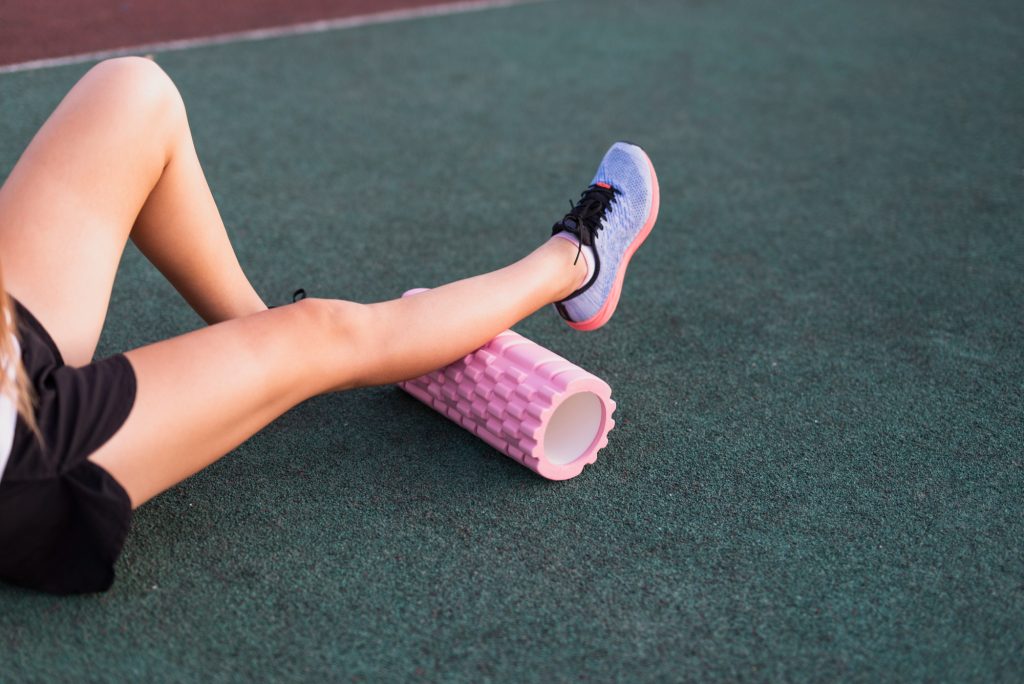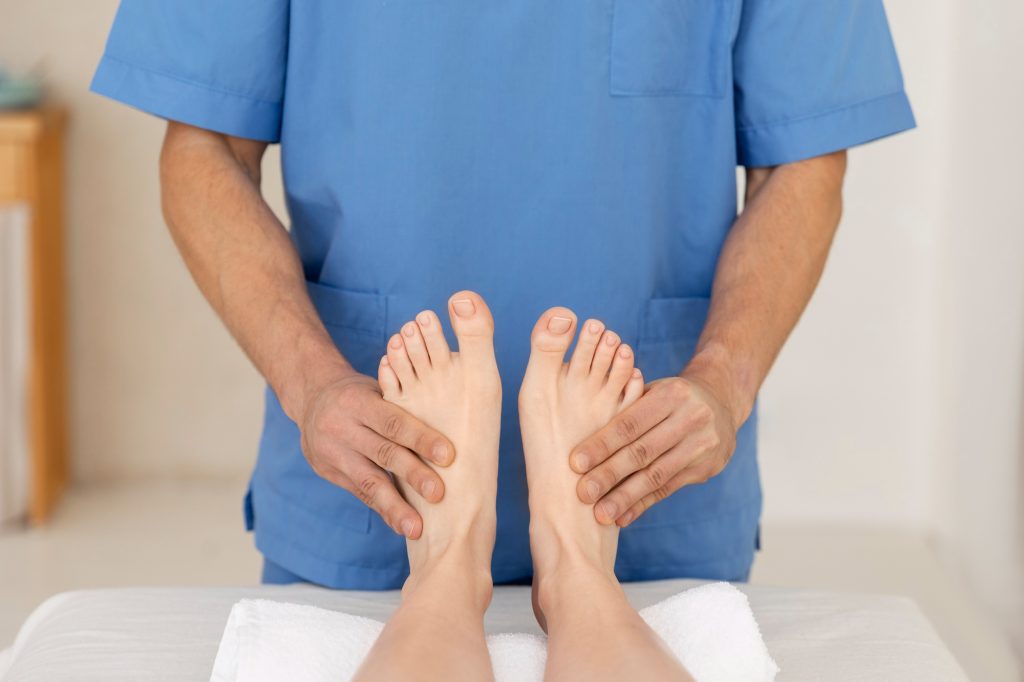Discover how orthotic insoles can provide relief and support for back pain during pregnancy.
Can Orthotic Insoles Help Manage Back Pain During Pregnancy?
Back pain during pregnancy is a common issue that many women face. The added weight and changes in posture can put strain on the back, leading to discomfort and pain. But fear not, because there might be a solution to help alleviate some of the discomfort – orthotic insoles!

Understanding Back Pain During Pregnancy
Pregnancy is a beautiful journey, but it can also bring some unwelcome surprises. Back pain is one of them. As your body goes through the remarkable process of creating life, it undergoes various changes that can impact your spine and muscles.
During pregnancy, your body goes through numerous changes to accommodate the growing baby. These changes can have a significant impact on your posture, leading to back pain and discomfort.
Causes of Pregnancy-Related Back Pain:
- Growing uterus: As your baby develops, your uterus expands, causing a shift in your center of gravity and putting more pressure on your lower back.
As your baby grows inside your womb, your uterus expands to provide enough space for your little one to develop. This expansion causes a shift in your center of gravity, which can put additional pressure on your lower back. The increased weight and pressure can lead to discomfort and back pain.
- Hormonal changes: Pregnancy hormones like relaxin loosen the ligaments and joints, allowing the body to accommodate the growing fetus. However, this can also lead to instability and pain.
During pregnancy, your body produces hormones like relaxin, which help to loosen the ligaments and joints in your pelvis. This hormonal change allows your body to adapt and make room for the growing fetus. However, the loosening of ligaments and joints can also lead to instability, causing pain and discomfort in your back.
- Postural changes: As the baby grows, your pelvis tilts forward, increasing the curvature of your lower back. This new posture can strain your muscles and cause discomfort.
As your baby continues to grow, your pelvis naturally tilts forward to accommodate the increasing weight and size of your uterus. This forward tilt can increase the curvature of your lower back, putting strain on the muscles and causing discomfort. The change in posture can also affect the alignment of your spine, contributing to back pain during pregnancy.
How Pregnancy Changes Your Body Posture:
During pregnancy, your body undergoes significant changes to support the growth and development of your baby. These changes can have a profound impact on your posture, leading to back pain and discomfort.
As your baby grows, your abdomen expands, shifting your center of gravity forward. To compensate for this shift, your body adjusts its posture by arching the lower back and tilting the pelvis forward. This change in posture can put strain on the muscles and ligaments in your back, leading to pain and discomfort.
Additionally, the increased weight of your growing baby can cause your spine to curve more than usual, further contributing to back pain. The combination of these postural changes and the added weight can create a perfect storm for back pain during pregnancy.
It’s important to note that every woman’s experience with back pain during pregnancy is unique. Some may experience mild discomfort, while others may have more severe pain. If you’re experiencing back pain during pregnancy, it’s essential to consult with your healthcare provider for proper evaluation and guidance on managing your symptoms.
What are Orthotic Insoles?
Orthotic insoles, also known as orthotic inserts or shoe inserts, are specially designed devices that provide support and cushioning to the feet. They are often made from materials like foam, gel, or plastic and can be easily inserted into your shoes.
Orthotic insoles are not just a simple accessory for your shoes; they offer a multitude of benefits that can improve your overall foot health and well-being. These insoles are designed to address various foot conditions and provide the necessary support and comfort.
Different Types of Orthotic Insoles:
There are different types of orthotic insoles available in the market, each catering to specific foot needs. Here are some common types:
- Arch-support insoles: These insoles are designed to provide additional support to the arch of your foot, reducing strain on the muscles and ligaments. They are particularly beneficial for individuals with flat feet or high arches.
- Cushioning insoles: These insoles are made from soft materials that help absorb shock and provide extra cushioning to the feet. They are ideal for individuals who spend long hours on their feet or engage in high-impact activities.
- Custom orthotic insoles: These insoles are tailor-made to fit the unique shape and needs of your feet. They offer personalized support and comfort, as they are crafted based on a detailed analysis of your foot structure and gait pattern. Custom orthotic insoles are often recommended for individuals with severe foot conditions or those who require specific support.
How Orthotic Insoles Work:
Orthotic insoles work by redistributing the pressure and weight that your feet experience while walking or standing. They provide support to the arch, heel, and ball of the foot, helping to maintain proper alignment and reducing excessive stress on specific areas.
When you walk or stand, your feet bear the weight of your entire body. This weight distribution can sometimes be uneven, leading to discomfort, pain, and even long-term foot problems. Orthotic insoles help to correct this imbalance by providing additional support and cushioning where it is needed the most.
By improving your overall body alignment, orthotic insoles can alleviate not only foot pain but also pain in other parts of the body, such as the knees, hips, and lower back. They help reduce strain on the muscles and joints, allowing for better shock absorption and improved stability.
Whether you are an athlete looking for enhanced performance, someone with a foot condition seeking relief, or simply someone who wants to improve their foot health, orthotic insoles can be a valuable addition to your footwear. They offer a proactive approach to foot care and can make a significant difference in your comfort and overall well-being.
The Connection Between Feet and Back Pain
Did you know that the health of your feet can impact your back? It might sound surprising, but our feet play a vital role in maintaining proper spinal alignment.
When we think about back pain, we often focus on the muscles, discs, and bones in our spine. However, the feet, which bear the weight of our entire body, can have a profound effect on our back health as well. The way we walk, stand, and distribute weight can either promote or hinder spinal alignment.

The Role of Foot Arch in Back Pain
Foot arches are crucial for distributing weight evenly across the foot and providing stability. If you have excessively high or low arches, it can affect the alignment of your entire body, including your spine. This misalignment can contribute to back pain during pregnancy.
Let’s delve deeper into the mechanics of foot arches. The arches of our feet act as shock absorbers, helping to cushion the impact of each step we take. When the arches are too high or too low, the shock absorption is compromised, leading to increased stress on the joints and muscles of the feet, ankles, knees, and ultimately, the lower back.
Individuals with high arches, also known as pes cavus, often experience excessive pressure on the balls and heels of their feet. This can cause an overpronation, where the feet roll inward excessively, throwing off the alignment of the entire body. On the other hand, individuals with low arches, or flat feet, may have an overpronation as well, leading to a similar misalignment of the spine.
It’s important to note that the relationship between foot arches and back pain is not limited to pregnancy. People of all ages and lifestyles can experience back pain due to improper foot arch support. Whether you’re an athlete, a desk worker, or a busy parent, taking care of your feet can significantly impact your overall spinal health.
Impact of Footwear on Spinal Health
Choosing the right footwear is essential for maintaining good spinal health, especially during pregnancy. High heels and unsupportive shoes can throw off your body’s balance and increase the strain on your back. Opting for shoes that provide adequate arch support and cushioning can make a significant difference in preventing or relieving back pain.
Let’s explore the impact of footwear on spinal health in more detail. High heels, for instance, alter the natural alignment of the body. They shift the weight forward, causing an increased curvature of the lower spine, known as lumbar lordosis. This unnatural posture can lead to muscle imbalances, strain on the lower back, and ultimately, back pain.
On the other hand, wearing shoes with inadequate arch support can also contribute to back pain. When the arches of the feet are not properly supported, the body compensates by altering its posture, which can lead to misalignment of the spine. This misalignment puts additional stress on the muscles, ligaments, and discs of the back, increasing the risk of pain and injury.
Fortunately, there are many footwear options available that prioritize both style and spinal health. Look for shoes with built-in arch support, cushioning, and a supportive heel counter. These features help to maintain proper alignment, reduce pressure on the back, and provide comfort throughout the day.
Remember, taking care of your feet is not just about comfort and aesthetics; it’s about promoting the overall health and alignment of your spine. So, the next time you slip on a pair of shoes, consider the impact they may have on your back and choose wisely.
Orthotic Insoles and Pregnancy
Benefits of Using Orthotic Insoles During Pregnancy:
Orthotic insoles can be a game-changer when it comes to managing back pain during pregnancy. Here are some key benefits:
- Improved body alignment: By supporting your feet and enhancing your body’s alignment, orthotic insoles can help alleviate the strain on your back.
- Reduced pressure on specific areas: Orthotic insoles can redistribute the pressure and weight on your feet, preventing excessive strain on certain parts of your body.
- Enhanced shock absorption: The cushioning provided by orthotic insoles can absorb shock and reduce the impact on your lower back.
Choosing the Right Orthotic Insoles for Pregnancy:
Not all orthotic insoles are created equal, so it’s crucial to choose the right ones for your needs. Here are a few things to consider:
- Arch support: Look for insoles that provide adequate arch support to help maintain proper body alignment.
- Cushioning: Opt for insoles with sufficient cushioning to absorb shock and provide comfort.
- Size and fit: Ensure that the insoles fit properly in your shoes and support the entire length of your foot.
Safety and Precautions When Using Orthotic Insoles
When to Consult a Doctor
While orthotic insoles can offer relief for back pain during pregnancy, it’s essential to seek medical advice if you experience severe or persistent pain. Your healthcare provider can evaluate your condition and recommend the most appropriate course of action.
Potential Side Effects of Orthotic Insoles
Although orthotic insoles are generally safe to use, some individuals may experience discomfort or soreness during the initial period of adjustment. If the discomfort persists or worsens, it’s best to consult a healthcare professional.
Ready to bid farewell to back pain during pregnancy? Consider giving orthotic insoles a try! Remember, it’s always wise to consult with your healthcare provider before incorporating any new products or treatments into your pregnancy routine. Here’s to a more comfortable and pain-free journey!



